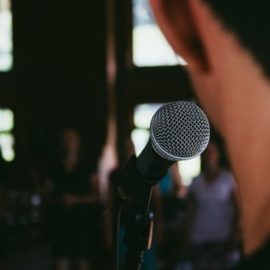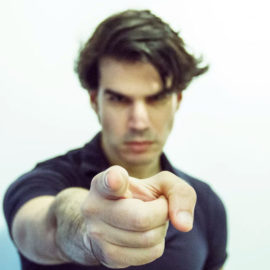
Why do people with ADHD sometimes have impulsive behavior? What’s the key to exercising impulse control with ADHD?
Phil Boissiere names poor impulse control as a common ADHD challenge. Impulse control involves stopping, considering your options, and choosing the best action in a given situation, but this can be difficult to practice with ADHD.
Learn more about the connection between ADHD and impulsive behavior below.
Failure to Pause Before Acting
Executive functions are necessary for impulse control to work, which is why people with compromised executive functioning (as in people with ADHD) struggle to manage their impulses. This can become problematic, as impulsive behaviors aren’t the best responses in most circumstances.
ADHD and impulsive behavior together typically look like this: Something happens that provokes an emotional response. You react immediately without considering the possible consequences of your actions. Then, you must face those consequences, no matter how unpleasant they are.
For example, say you get a notification that your favorite clothing brand is releasing a limited-edition jacket. Without considering the cost, you immediately order the jacket using your credit card. A couple of days later, you see the charge on your credit card statement and feel overwhelmed by how much money you’ve spent. Now your budget for everything else this month needs to be overhauled, and you have several hundred dollars more debt than you did before.
(Shortform note: Some experts point out that impulsive behavior has some advantages along with its negative consequences. Some of the best examples of art and creativity come from impulsivity, which allows for a unique kind of spontaneity. Impulsivity can also make you a quick decision-maker who doesn’t let valuable, time-sensitive opportunities slip away.)
Examine the Consequences of Your Actions
Boissiere states that this strategy prompts you to examine your role in recent situations that resulted in a negative outcome. In doing this, you practice creating a mental connection between your actions and their consequences, which helps to reduce impulsivity.
(Shortform note: If you want more help understanding your actions, consider reaching out to a trusted loved one or a therapist for feedback. Both professionals and people who know you well can offer valuable perspectives on your behavior and its effects.)
Think of three recent scenarios when your behavior led to an unpleasant outcome. In a notebook, write down each scenario’s outcome. Then write down how the results of your actions made you feel.
For example, “My partner interrupted me while I was trying to focus on work and I snapped at her without thinking. This hurt her feelings and we got into a fight. Afterward, I felt ashamed that I upset her, and I could no longer focus on anything.”
(Shortform note: As you’re thinking about each of your three scenarios, you can use the following questions to guide and add to your reflection: First, ask yourself what decisions you made and why. What actions did you take based on those decisions? Why? What was the outcome of your choices? Then consider the other decisions you could have made. How might the outcome of the situation have been different if you had made a different choice?)
| Additional Tips for Reducing Impulsive Behavior If you’re having trouble identifying three specific scenarios to reflect on, consider trying these two tips for reducing impulsive behavior from other experts in ADHD: Identify environments, triggers, and circumstances that are likely to drive you to act impulsively. For example, you may act impulsively when you drink alcohol or go to a shopping mall. Then do your best to avoid these triggers. Insert time buffers before you make decisions. For instance, wait 24 hours after you have the urge to buy something before purchasing it to ensure it’s a good decision. |






